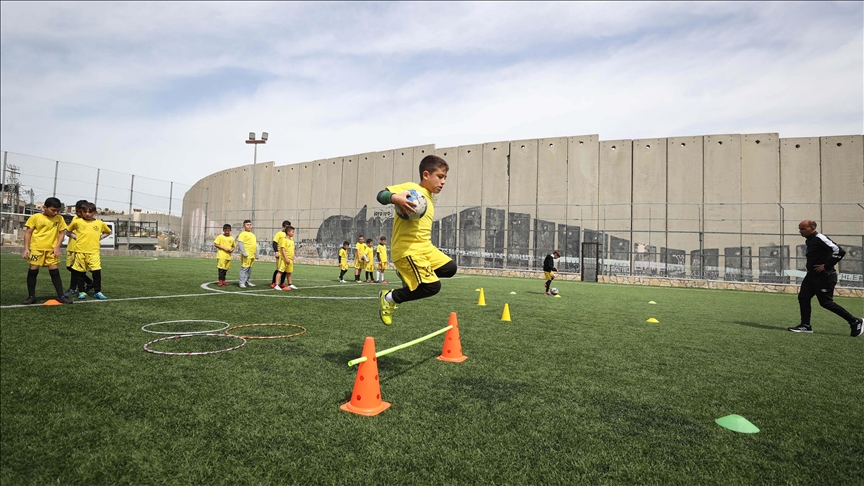GENEVA
Feeling included might have a big importance for anyone who fled his or her home country and sought refuge in another for a better chance in life.
Sport can be the glue between refugees and host communities that enables both to live side by side, according to a UN refugee agency coordinator.
“Sport can be a useful cross-cutting tool in refugee response. First and foremost, it is a fun activity that can return some normality to the lives of refugees, especially children and youth — whose lives have been completely uprooted,” Nick Sore, the senior refugee sports coordinator, told Anadolu.
“In many of the contexts where refugees live they live side by side with host communities and where resources are scarce, this has the potential to create tension between individuals and communities,” said Sore.
Due to the nature of sport, it is “often a common passion and can act to to bring communities together and support the aim of more peaceful cohesive communities,” he said.
Sport can be used as a tool for learning and development as well, he said. Noting that 50% of refugees of school age are out of school, the coordinator emphasized that purposely designed sports activities can help fill the gap in learning as a “low-cost high-impact intervention.”
“Sport can also help to achieve social objectives such as improved social cohesion, improved social inclusion and improved psychosocial wellbeing,” Sore added.
Asked about the number of refugee lives touched by sport in 2023, he said UNHCR, the UN Refugee Agency, does not have a specific number but “if we look across all locations and partners, I would guess that it is well in excess of a million.”
– Sport role in Rozma Ghafouri’s story
There are “so many positive stories that demonstrate the role that sport can play but this one, in particular, is one I like,” Sore said, referring to Rozma Ghafouri — an Afghan sports coach and youth counselor who helps young refugees find a path to school in Iran.
Ghafouri was the regional winner for Asia for the UNHCR’s annual Nansen Refugee Award for her work empowering Afghan refugee girls in 2023.
When the Taliban took control of her hometown in northeastern Afghanistan’s Kapisa province, she was nearly 6 years old and fled with her parents and four siblings.
In Iran, they found safety, but during the initial years in exile, the family struggled to make ends meet, let alone pay for school fees.
After spending much of her childhood working as a laborer, she founded the Youth Initiative Fund in 2015 in the southern Iranian city of Shiraz to help at-risk children and she turned a new page with football.
Regarding the fact that a refugee athlete will lead the IOC Refugee Olympic Team at the 2024 Paris Olympic Games for the first time, the coordinator said: “This is a very positive move and is in line with UNHCR’s work around making sure that refugees are engaged and where possible play a lead in processes that affect them.”
– 5 pillars of sport pledge in Global Refugee Forum
During the three-day Global Refugee Forum in Geneva, held Wednesday to Friday, Sore said the multi-stakeholder sport pledge has five pillars, and pledges have been made in all five areas.
It includes enabling environment — including policy that delivers access to safe sport; promoting and providing inclusive, safe, sport and play-based initiatives; and promoting and providing opportunities for enhanced skills and pathways in and through sport, according to the coordinator.
Using targets communication, evidence and advocacy, as well as strengthening partnerships and coordination efforts among areas of interest, he said.
“The extended sport ecosystem of the Olympic family, the football family, sport apparel companies, communication companies, state bodies, UN agencies working through sport, refugee-led organizations and other NGOs is enormous and combined has so much potential to make a difference in refugees lives if engaged, supported and brought on board as partners,” he said. “We need to work with them to identify opportunities for refugees and host communities to thrive.”

